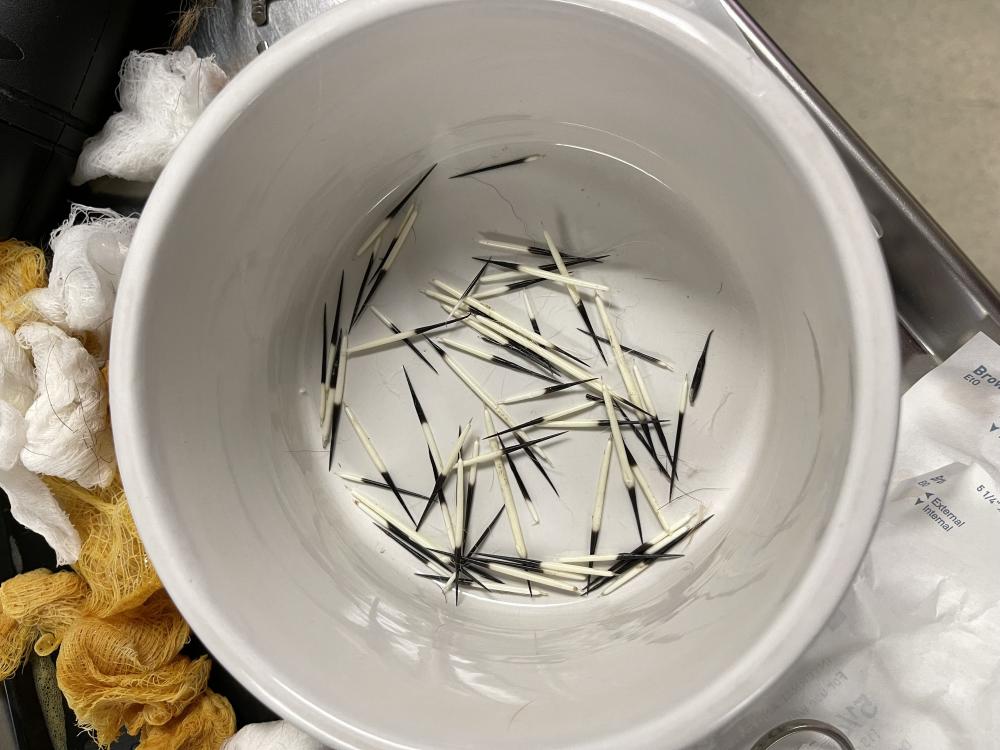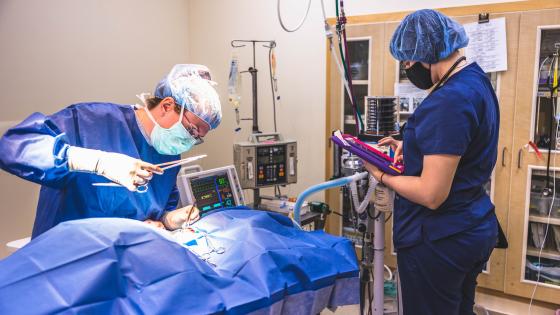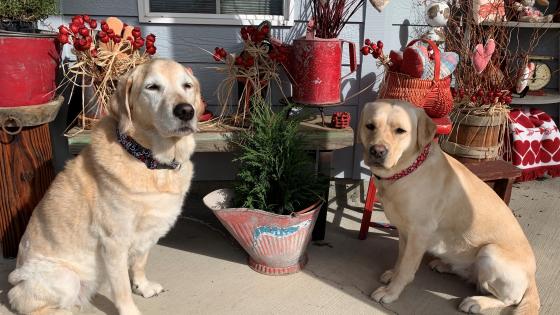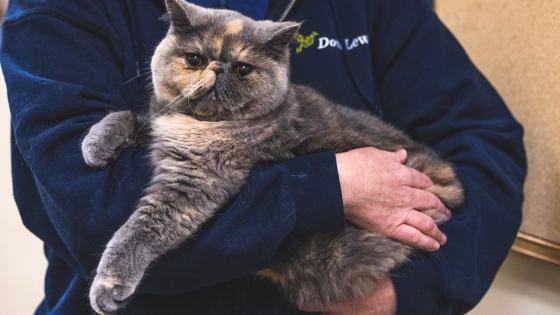Protecting Your Pet from Wildlife Encounters
With the sun shining, now is the perfect time to enjoy the outdoors with your pets. However, this also means more opportunities for wildlife encounters. Whether your pet is exploring your property, you live near wooded areas, or you’re hiking together, it’s essential to stay aware of potential dangers. Here’s how to keep your pets safe and what to do if they encounter wildlife.
 Porcupines: A Prickly Threat
Porcupines: A Prickly Threat
Porcupines are nocturnal creatures that defend themselves with sharp, barbed quills. If your pet gets too close, these quills can cause significant pain and require careful removal.
What to do if your pet gets quilled: Stay calm, avoid pulling out the quills yourself, and seek immediate veterinary care. Quills can be deeply embedded and should be removed by a professional to prevent injury or infection.
Prevention: Supervise your pet outdoors, especially at night. Consider using motion-activated lights to deter nocturnal animals, and store food properly to avoid attracting porcupines.
Snakes: A Hidden Danger
As the weather warms, snakes become more active. While not all snakes are venomous, even non-venomous bites can lead to infection or swelling.
What to do if your pet is bitten by a snake: Stay calm, limit movement to slow the spread of venom, and get veterinary care immediately, especially if the snake is venomous.
Prevention: Keep your yard well-maintained by mowing grass and removing debris. Teach your dog a reliable recall to help keep them away from snakes in the wild.
Raccoons and Skunks: Disease Risks Close to Home
Raccoons and skunks are common in suburban areas and can spread diseases like rabies and leptospirosis. If your pet is sprayed by a skunk, quick action is essential.
What to do if your pet gets sprayed by a skunk: Avoid using tomato juice. Instead, create a deodorizing solution with hydrogen peroxide, baking soda, and dish soap. Bathe your pet thoroughly and check for any bites or injuries.
What to do if your pet encounters a raccoon: Monitor for any signs of illness, and check for bites or scratches. Seek immediate veterinary care if there's physical contact.
Prevention: Secure trash cans, store pet food indoors, and block off crawl spaces to keep these creatures away from your home.
Coyotes: A Growing Threat
Coyotes are highly adaptable and often venture into suburban and urban areas in search of food. Though coyotes usually avoid pets and humans, they can become a threat if they feel cornered or are protecting their territory.
What to do if your pet encounters a coyote: Stay calm and slowly back away. Do not run, as this may trigger the coyote to chase. If the coyote appears aggressive, make yourself look larger by waving your arms and making loud noises. If your pet is attacked, immediately seek veterinary care.
Prevention: Keep pets indoors at night, especially small dogs and cats, when coyotes are most active. Use secure fencing and avoid leaving food outside to prevent attracting coyotes.
What to Do if You Find a Wild Animal in Need of Help
Springtime means baby animals, and while some may seem abandoned, their parents are often nearby. If you find a wild animal in distress, follow these steps:
- Call the experts. In Oregon, some local centers include:
- Bird Alliance of Oregon
- Wildlife Center of North Coast in Astoria
- Cascades Raptor Center in Eugene
- Chintimini Wildlife Center in Corvallis
- Limit your contact. Wild animals are easily stressed by human interaction. Handle them only if instructed by a professional.
- Safely contain the animal if needed. Use a towel or thick gloves to gently place them in a ventilated box or carrier.
- Do not feed or give water. If the animal is weak or injured, food or water could do more harm than good.
DoveLewis is not a wildlife rehabilitation center, but can accept ill or injured wild animals outside of the Bird Alliance of Oregon’s Wildlife Care Center hours (9 a.m. – 5 p.m. daily). If you come across a sick or injured animal in the evening or on weekends, call DoveLewis for next steps.
For more information and resources, visit the Bird Alliance of Oregon:
Even if your pet only roams their own backyard, wildlife encounters are still possible. By staying vigilant, supervising outdoor time, and knowing how to react in an emergency, you can help keep your pet safe.
If your pet has a wildlife-related injury, whether it's a quill-covered muzzle, a snake bite, or a raccoon bite, DoveLewis is here 24/7 to help. Our experienced team is ready to provide emergency care to ensure your pet’s safety and well-being.



